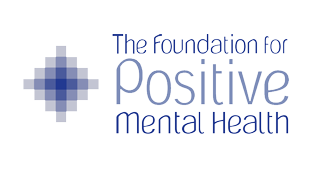Primary Care
For an overview of Positive Mental Training in primary care see this summary in RCGP News
Positive Mental Training has been found to be effective in primary care.
Research with Edinburgh University in 2004/2005 established Positive Mental Training’s efficacy in depression in primary care. In this study the programme was initiated by a nurse, after referral from a GP, and followed up with telephone contact only.
Results showed
- a significant improvement in depression for those listening to PosMT and
- this effect was similar to other psychotherapeutic treatments – counselling and CBT.

Graph showing the change in BDI (Becks Depression Inventory) before and after 12 weeks of PosMT benchmarked against other comparative studies that looked at talking therapies (CBT and counselling), anti-depressants (Anti-D) and treatment as usual (TAU)
An economic evaluation was conducted in 2013 by Professor Paul McCrone, Kings College, London utilised the data from the above study and compared the efficacy of Positive Mental Training (PosMT) with computerised CBT (CCBT). They reported
- Net benefits of CCBT and PosMT were approximately equal in individuals with ‘moderate’ depression at baseline and markedly in favour of PosMT for the ‘severe’ depression subgroup.
- PosMT may represent good value for money in treatment of depression for certain groups of patients.
We have carried out anonymous surveys of professionals using the programme which show that Positive Mental Training has a positive effect on practitioners – in increasing their mental health knowledge and ability to feel they are coping better with not only their mental health patients, but with wider aspects of their work.
Survey & Activity Report of Positive Mental Training for Manchester GPSTs 2016.
A report detailing a one year follow up of a training workshop highlighting the impact of the training workshop on GPSTs and their use of the Positive Mental Training programme for their patients and themselves. Key findings were:
- 210 patients downloaded the programme from the website over the last 12 months, and 61 from the Feeling Good app from January onwards. Total 271: average is 13 patients per doctor using the programme.
35% of doctors (11) completed the survey. Key results from respondents were:
- 100% felt better able to manage their mental health & somatic/chronic patients
- 10 out of the 11 (91%) were using the programme for their patients
- 55% felt better able to manage their own stress
- 46% were using the programme personally
- 55% felt they had a better relationship with their patients
- 64% had greater job satisfaction
- All would recommend the training to colleagues
Links to 2 earlier surveys are below, which show similar benefits.
Summary Report of Online Evaluation of Positive Mental Training in Halton and St Helens
2009 Survey of Edinburgh GPs using Positive Mental Training
A 6 month pre & post survey of health professionals who attended the RCGP accredited training workshop ‘Positive Mental Training: recovery from distress’ in Wales, with results showing increased wellbeing as measured by WEMWBS.
We have used these surveys to help us estimate the number of patients treated with Positive Mental Training, which we calculate to be over 70,000. How do we calculate numbers of patients treated to be over 70,000.



